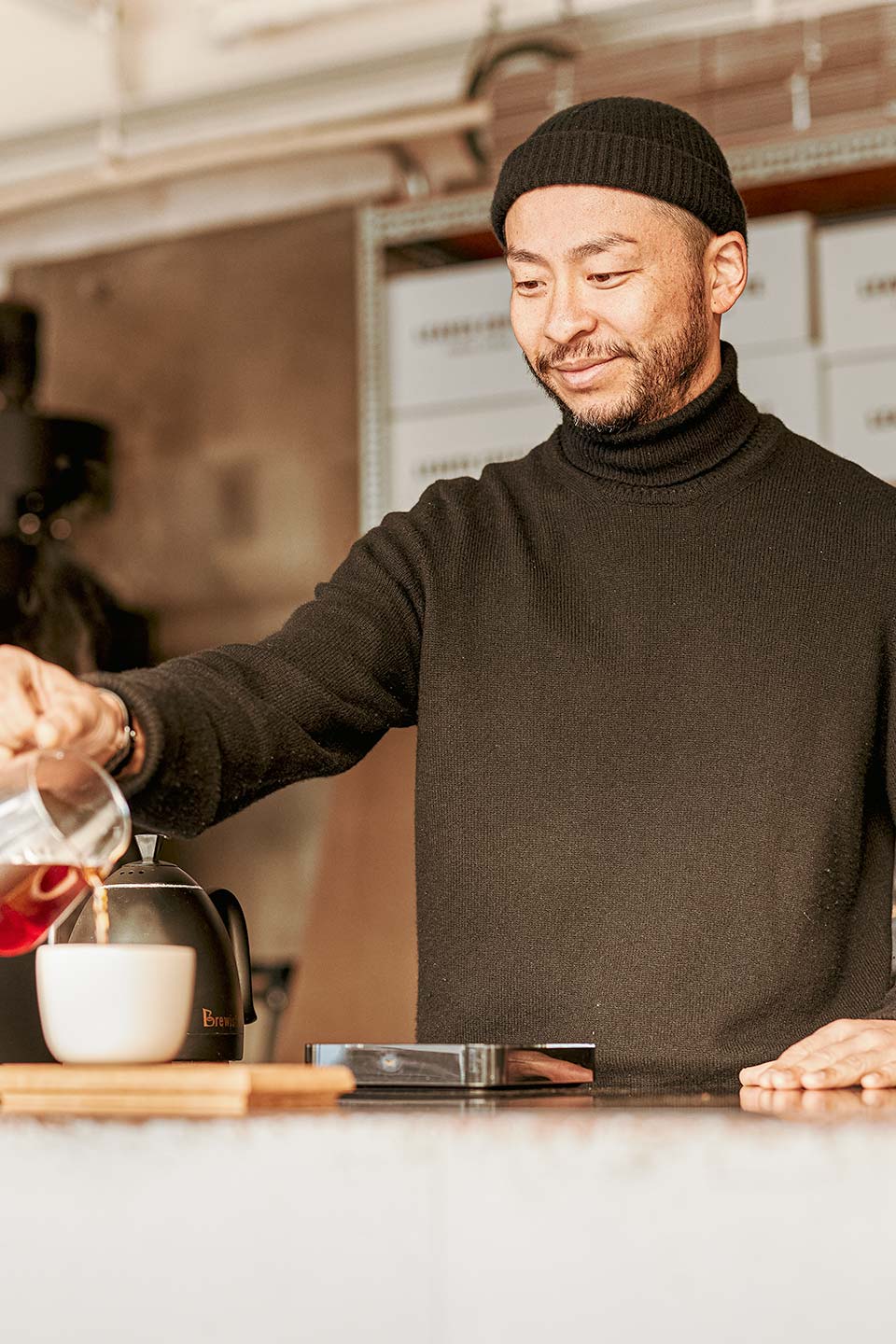
A Love for Coffee that Lets No Single Bean Go to Waste
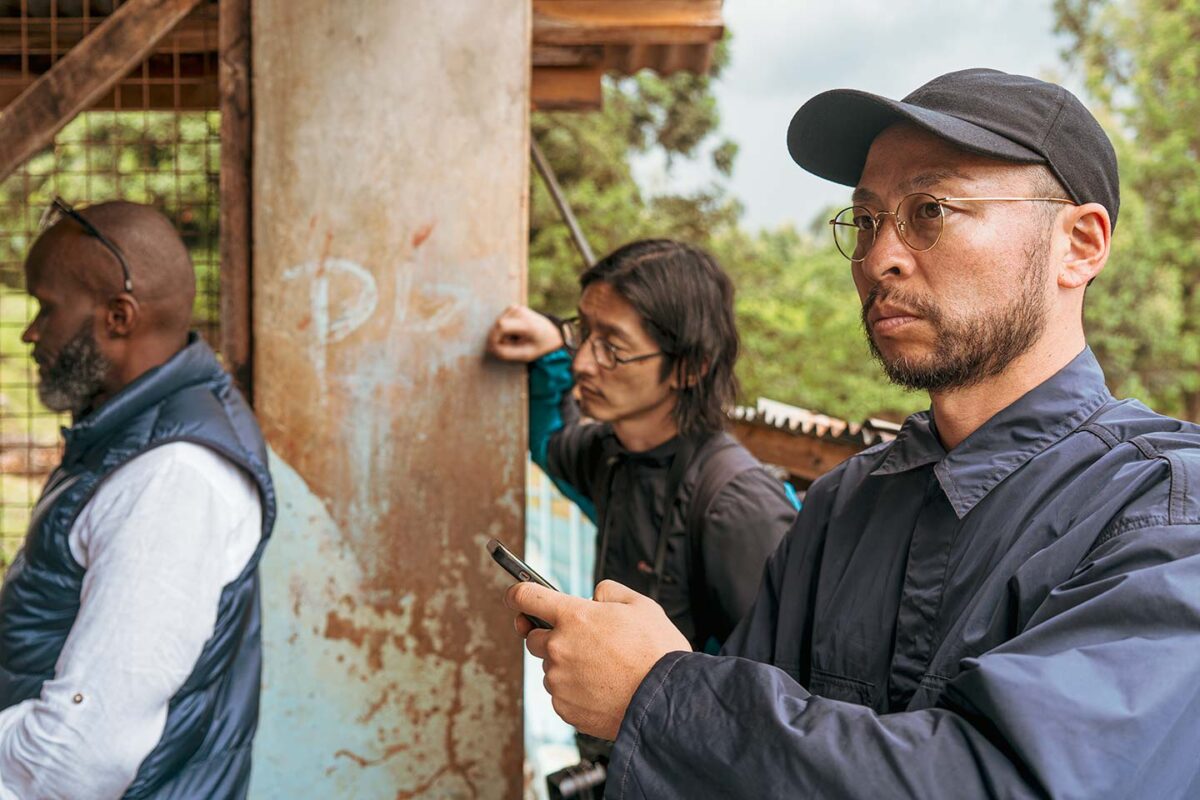
LEAVES COFFEE ROASTERS is a micro-roastery based in old Tokyo’s Shitamachi area, bringing Tokyo’s local flavors to the world. Founded in 2016, Yasuo Ishi has a dream to build it into a brand that can last more than a hundred years. With an uncompromising policy of quality-first and a solid belief in his own intuition, Yasuo shares what he learned from his trip to Tanzania and Kenya.
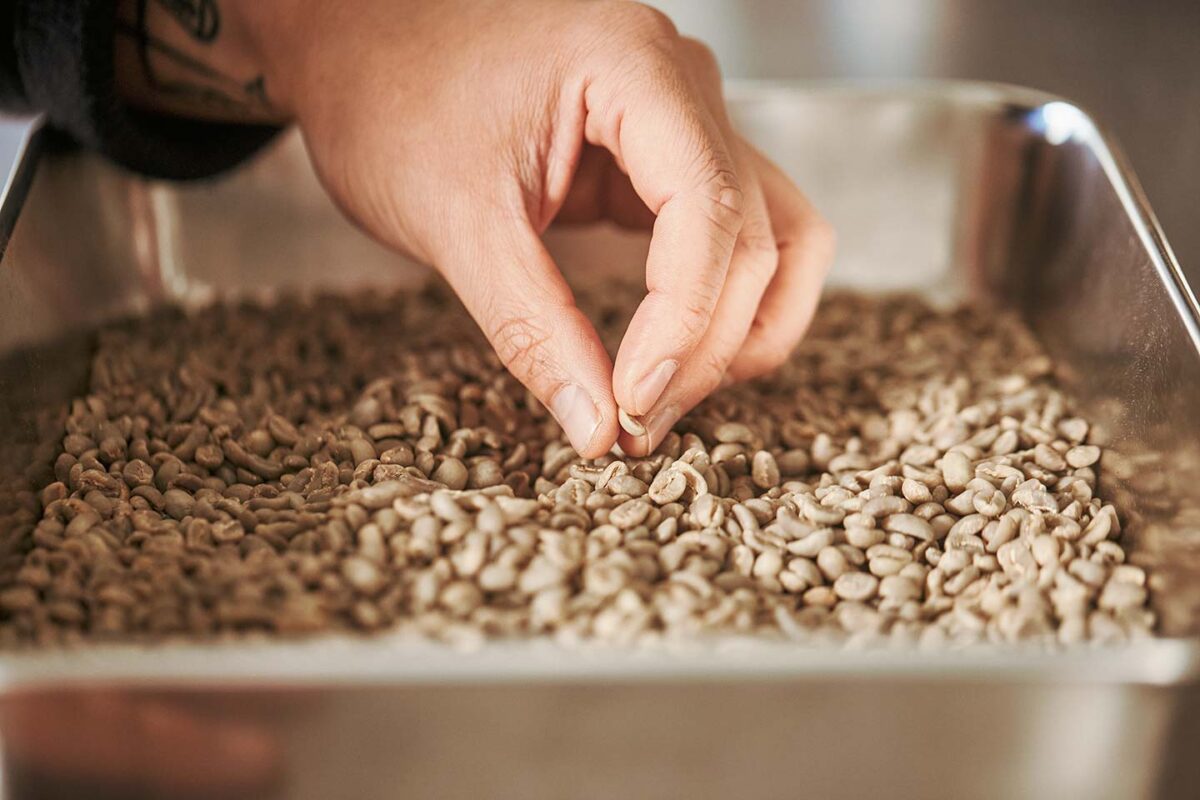
From inevitable to mindful
I used to think that a couple of fallen beans or a few drops of spilled coffee was an inevitable part of the process. That no matter how careful we were, there’d always be a small amount of produce lost. But since visiting the producing countries and seeing with my own eyes how coffee is produced, I’ve changed my opinion.
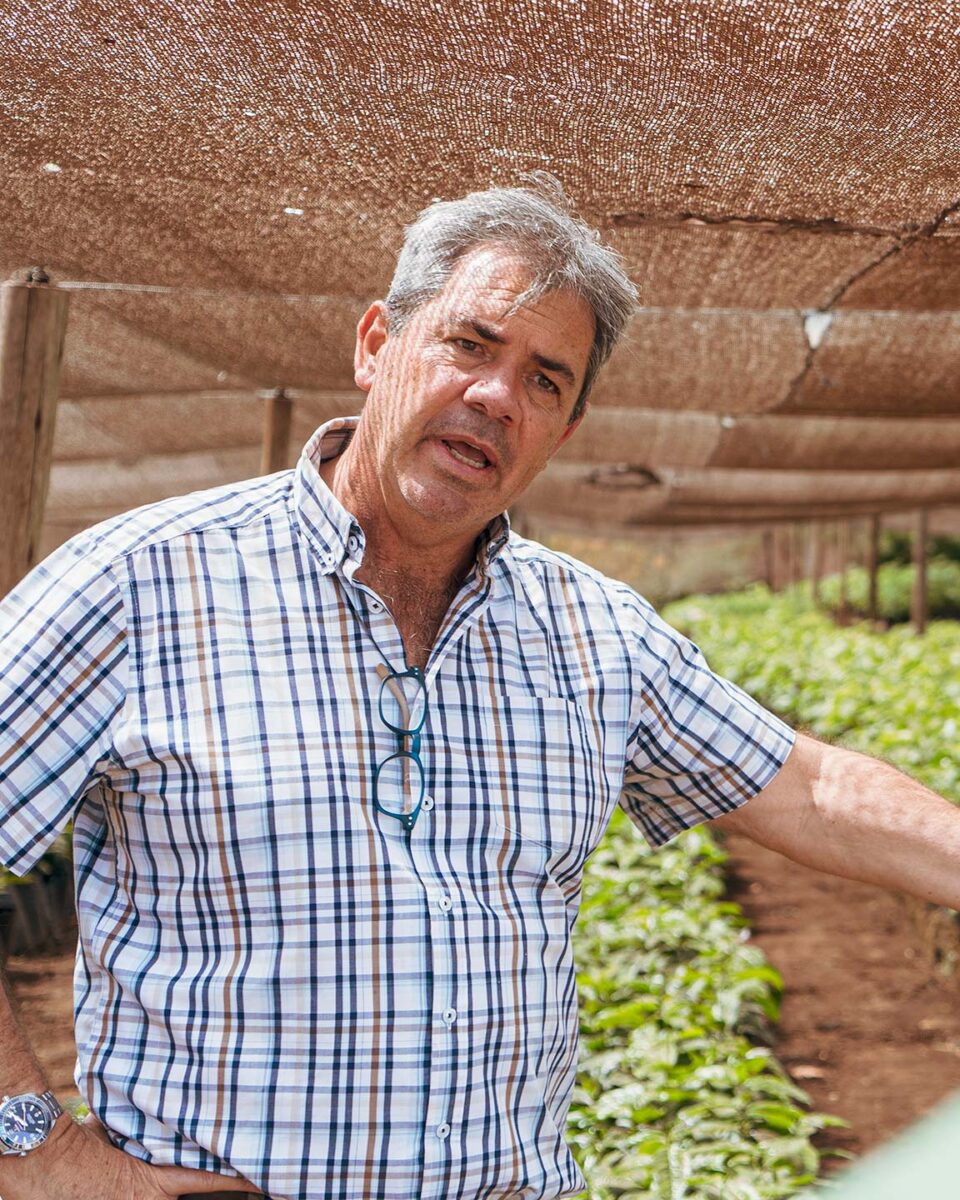
Out of everything I experienced during my trip to Tanzania, meeting Leon from Acacia Hills left the biggest impression. Despite having the ideal climate and terroir for natural and washed processing, Leon was using honey processing, a method that did not seem suitable for the bean. When I asked him why, he told me that it was to satisfy the request of a client.
As soon as he said that, I felt an affinity with him. While quality is always the priority, when you’re responsible for the livelihoods of over one hundred employees, you also have to think about making a coffee that sells, and one that meets the needs of the client. Leon was no different to me: someone trying to find a balance between realizing his dream, and the harsh realities of supply and demand.
Once you realize that, you can’t turn a blind eye to any waste, however small. You understand how precious each and every bean or drop of coffee is. So I’m much more mindful of how we use the produce than I was before the trip. But then, I’ve always been like that with my food. There’s never anything left on my plate, not even a grain of rice.
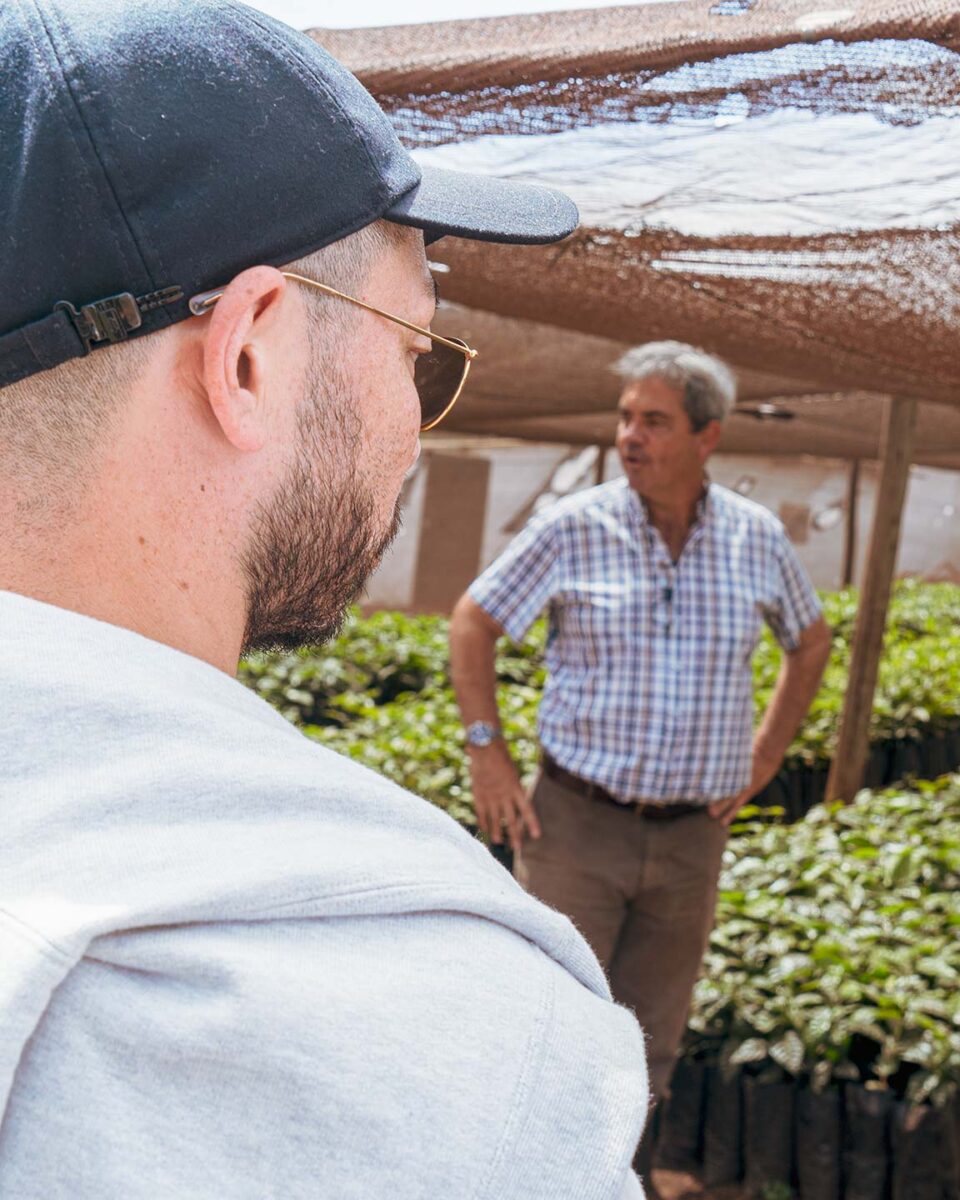
Creating a virtuous circle for coffee
There were other conversations with Leon that gave me an idea of the type of person he was. One time, Leon was telling us how he’d chosen to grow the Kent variety because it was local to Tanzania, when one of the roasters said “But isn’t Kent originally from India?” Everybody froze, wondering what Leon would say next. But Leon, who was probably hearing this for the first time, didn’t argue or disagree. Instead, he began thinking about how to move away from producing Kent.
I could tell that Leon is someone who knows how to read people, he knows what they want without asking. Whether it was taking us to a restaurant, or helping us check-in at our hotel, Leon was always going above and beyond, without it ever feeling that he had a motive other than to help. I could also tell that Leon was as obsessed with coffee as me. He easily lost track of time whenever it came to anything to do with coffee.
I’m exactly the same. I’ve never thought of this as my job, which is why whenever I’m doing anything with coffee, time just seems to fly by. At the same time, I’m someone who gets bored easily so I enjoy looking for and discovering new coffees to launch. I don’t want to restrict myself to a particular country or farm or client. I want to break down barriers and run my business how I want to.
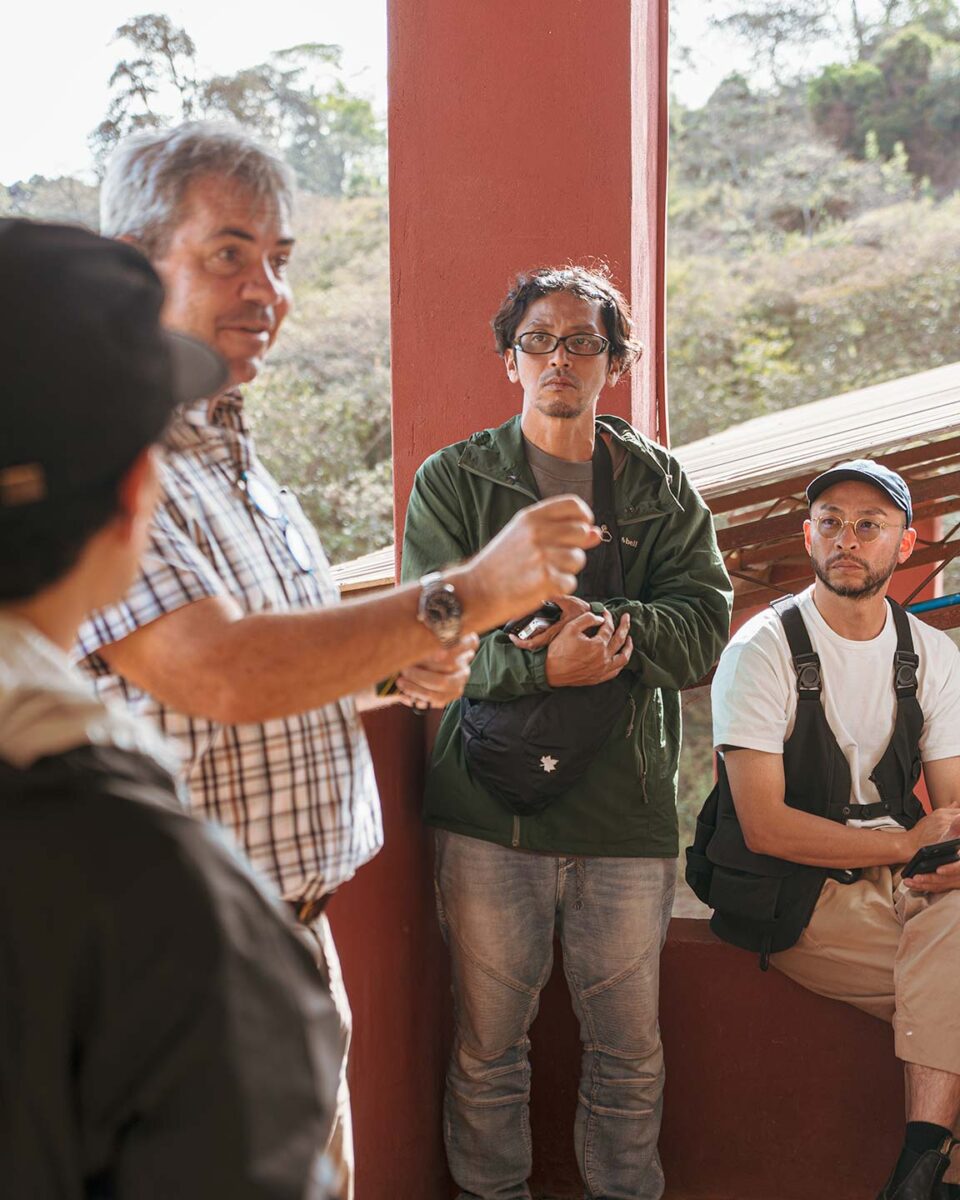
In other words, I really liked Leon. He’s the first producer I’ve met who made me feel that I want to buy from him forever. I want my customers to learn about his amazing coffee, and I know that having more people enjoying his coffee will make Leon happier too. It’ll also give him the motivation to keep pushing himself to make better coffee, which will lead to more fans and so on in a great virtuous circle.
I’ll admit that some of it is personal, but that doesn’t mean I’m willing to compromise on quality. No matter how I feel about Leon, if the quality drops significantly, then I won’t be able to buy from him anymore.
I know that might seem cold, but I also have a responsibility to my customers who trust that we will deliver the same level of quality we always have. Which is why it’s so important to give feedback and support to Leon and producers to help them keep producing great coffee.

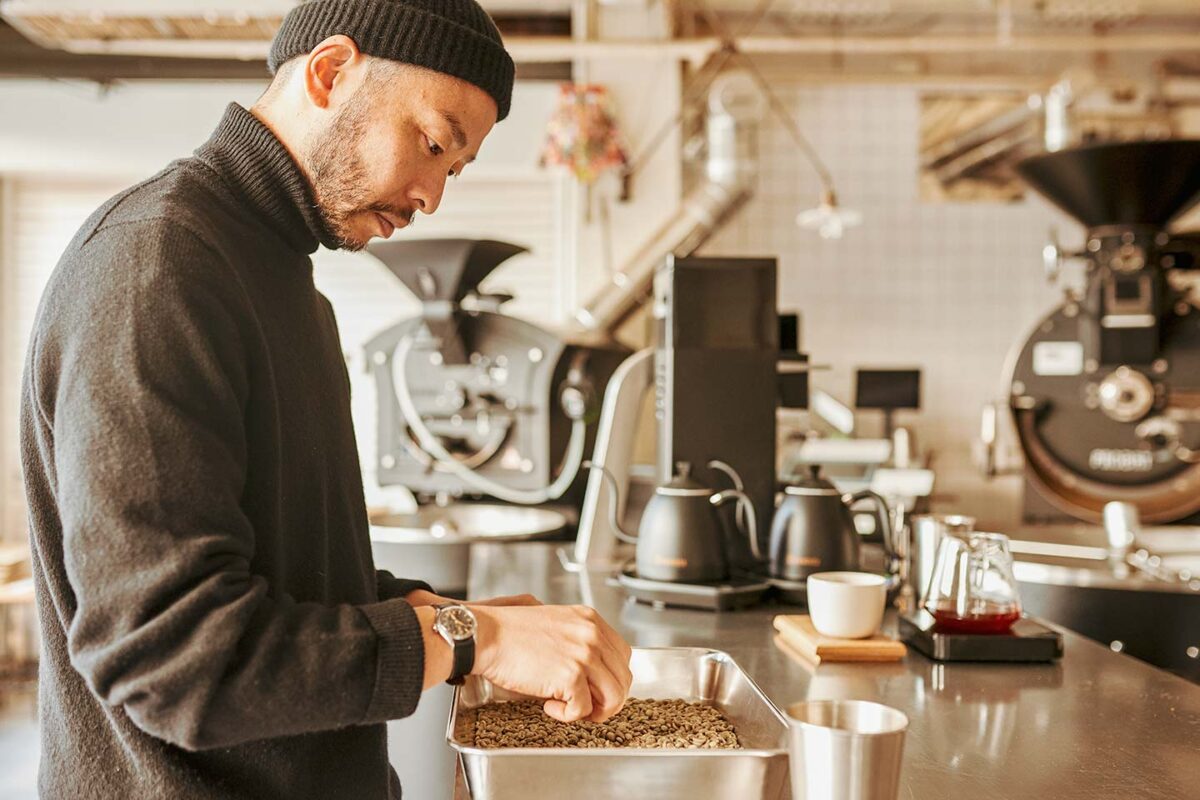
Brewing dreams with coffee
I’ve never bought coffee based on how famous or popular it is. In fact, I’d say I tend to go out of my way to find a great quality that has yet to be discovered. My criteria for choosing coffee is simple: 100% intuition.
For example, the Geisha I bought from El Devin in Colombia in 2021. When I bought the coffee, hardly anyone had heard of the farm but I knew it wouldn’t be long. Sure enough, in 2022, an Australian barista won the World Championship with a coffee from the same farm.
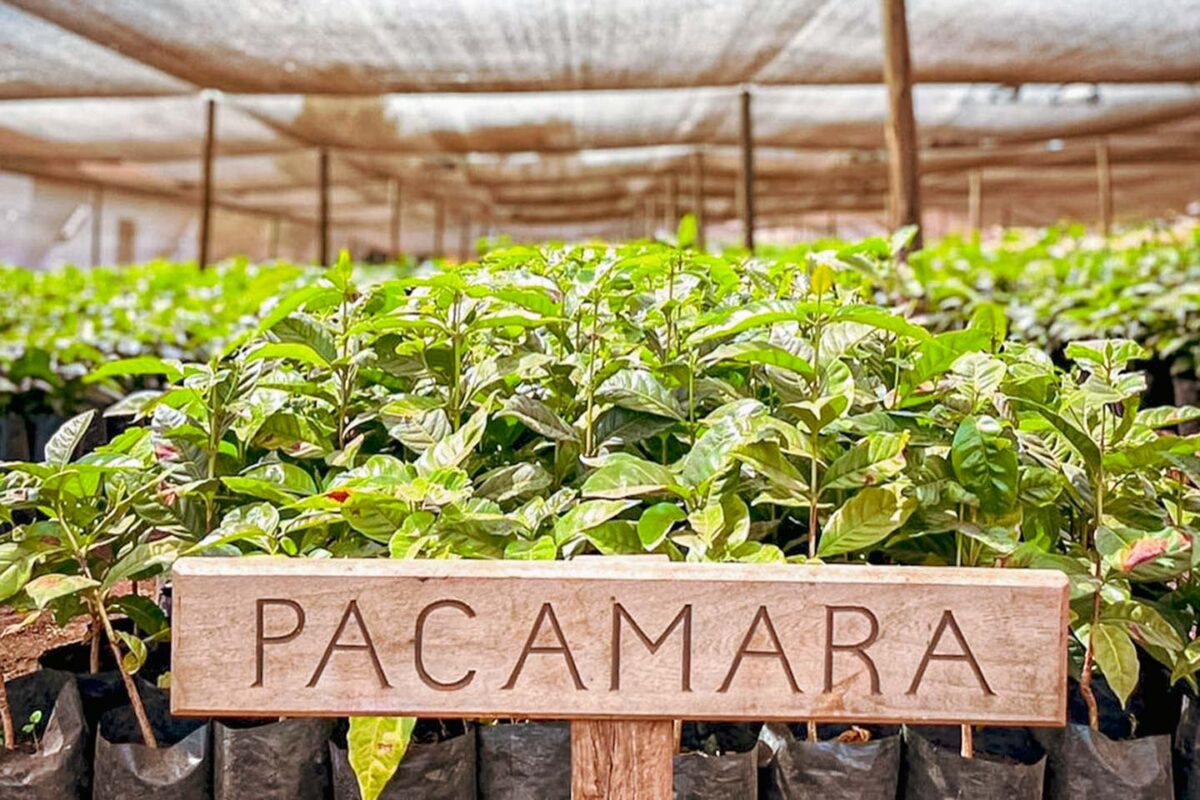
And it’s the same with my decision to buy Pacamara from Acacia Hills. I bought it simply because Tanzania and Pacamara is an interesting combination, and the coffee is delicious. People get excited about things they’ve never heard of or tasted before.
If I want my brand to last beyond 100 years, there may come a time when I need to think about what I can do to scale up the business. But even when that happens, I’ll still be trusting my instinct. There’ll never be a time when I sacrifice my principles to buy something just because it’ll sell.
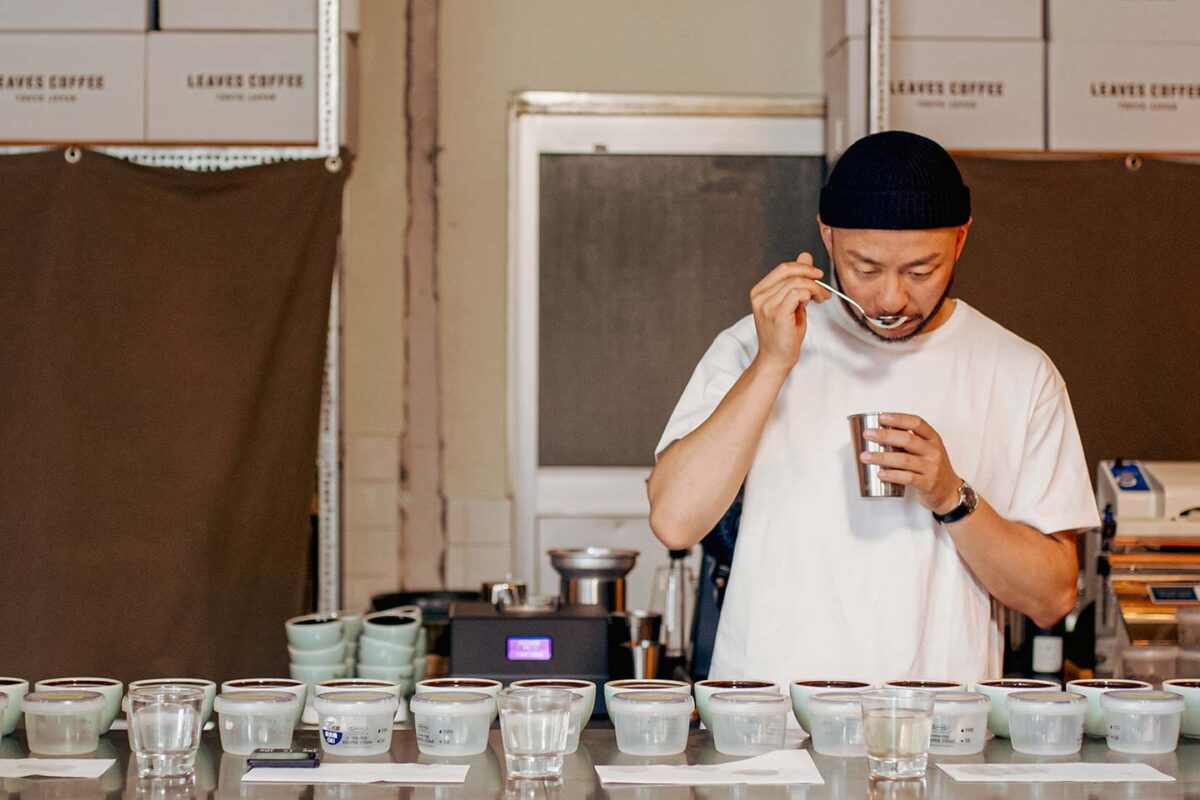
My priority will always be on enhancing the quality of the coffee that we believe in. As long as we can provide good quality, we’ll always have a customer. That customer will tell someone, and the word will spread.
Of course, there are issues that need to be addressed. We can make the best roastery and cafe there is, but there’s still work to be done on elevating the perceived value of baristas, roasters and coffee.
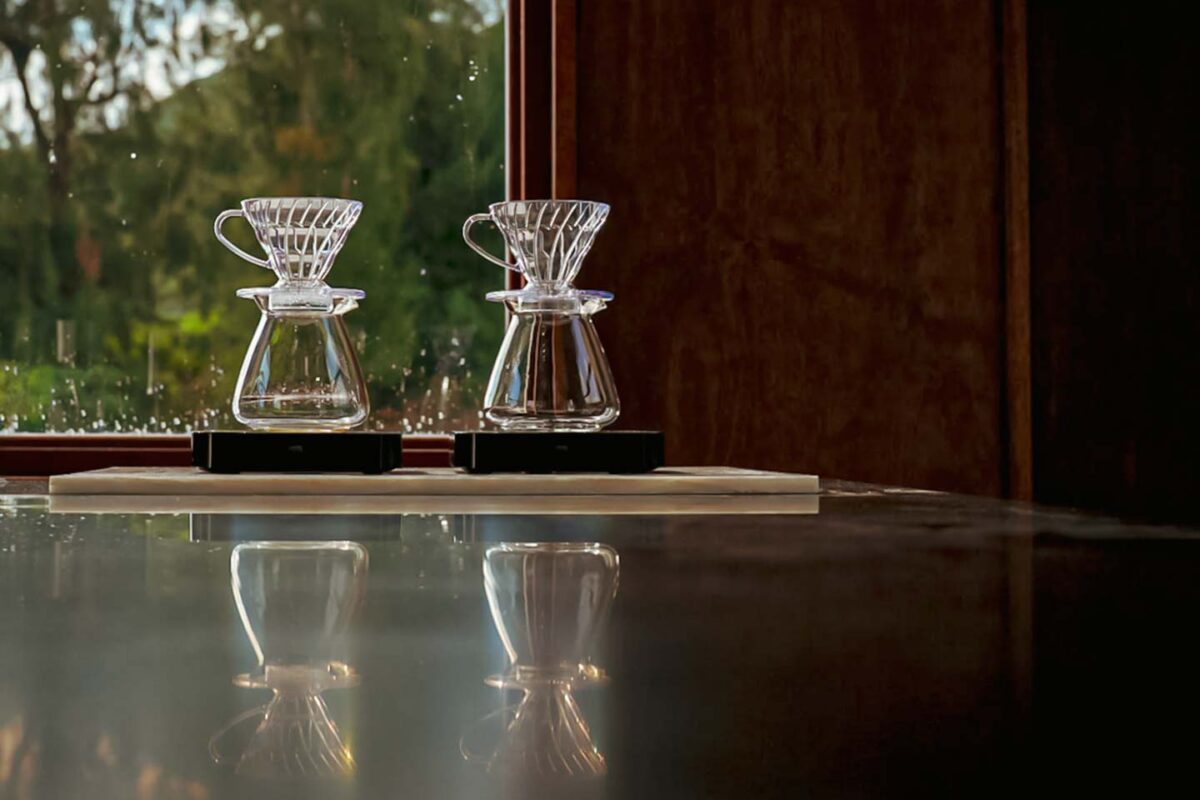
This was behind the opening of our sister store NAKAJIN in Okinawa in September 2022. The shop is based on a concept that I’ve been thinking about for a while, and sells a limited amount of coffee per day, at more than 2000 yen a cup.
Six months since opening, there’s still work to be done to build a solid customer base, but everyone who has visited the store has said it was an amazing experience. And one amazing coffee is going to be far more memorable than one hundred average coffees. I want to give people something to dream about, and I want to see my dreams come true as well.
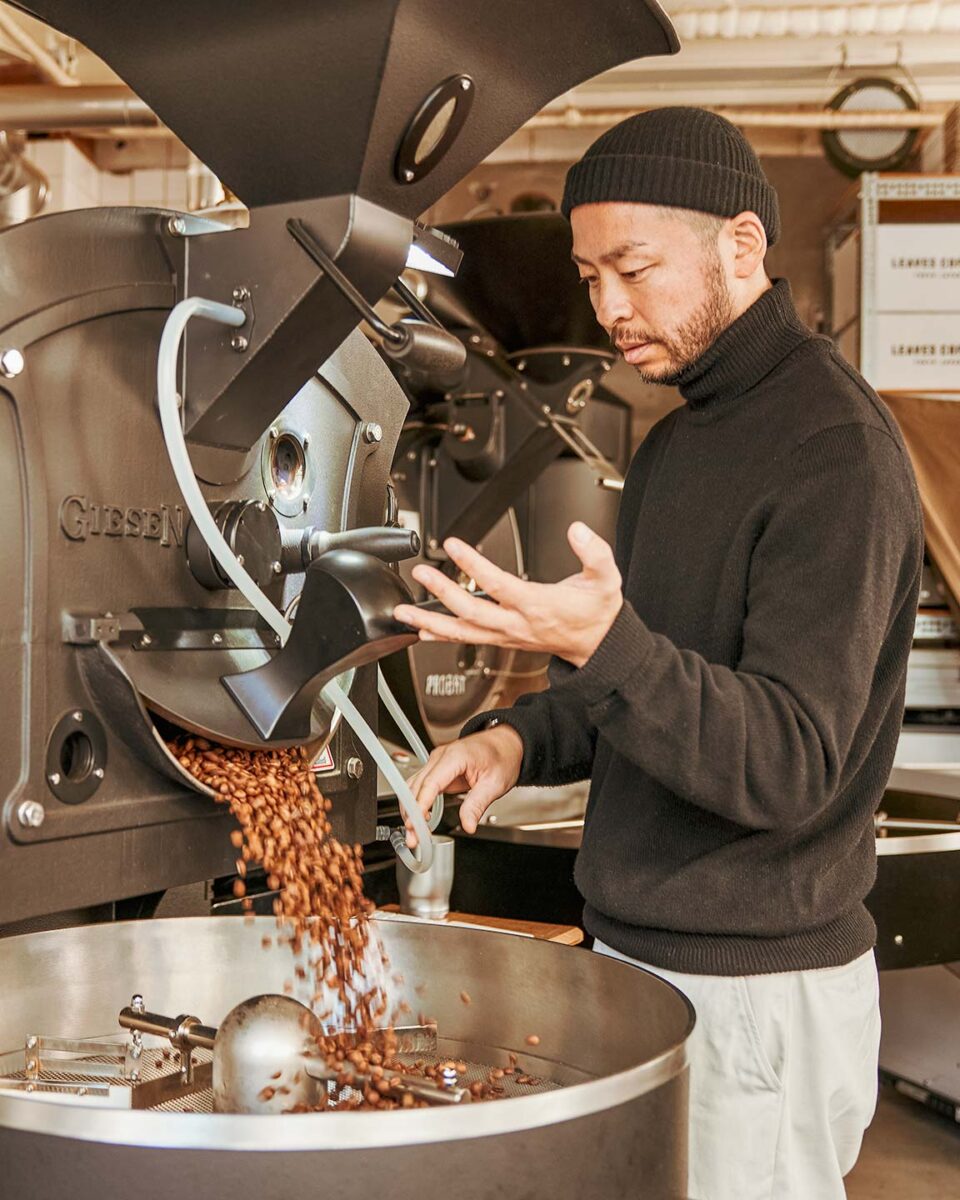
Care about where you’re going not how you get there
I want to give my customers an amazing experience with coffee, something extraordinary. So when the roasting doesn’t go as planned, it can feel like the end of the world. It’s like I’m drowning and I can’t get up for air. At times like this, I’m grateful for my staff. Even if I think it’s a lost cause, if they say it’s okay, then I know it’s worth persisting with bringing it up to standard.
The sad reality is that only 80% of the produce reaches our customers. Roasts that were not up to scratch are either used in training, or disposed of. I hate having to do that, especially when I think about the producers, but serving the customers something less than our best is even worse for the producers. If I compromise here, my dream of creating a 100-year brand gets further and further away.
When I look back on the path I’ve taken, I can see how I’ve passed crossroads where I’ve met people like Leon, or come across wonderful experiences. I’ve always taken those on, and then kept going forward. Never turning right or left or going back. I’m the only one leading the way, there’s no one in front of me to follow. Being someone who is bored easily means that I’m also someone who is not easily satisfied.
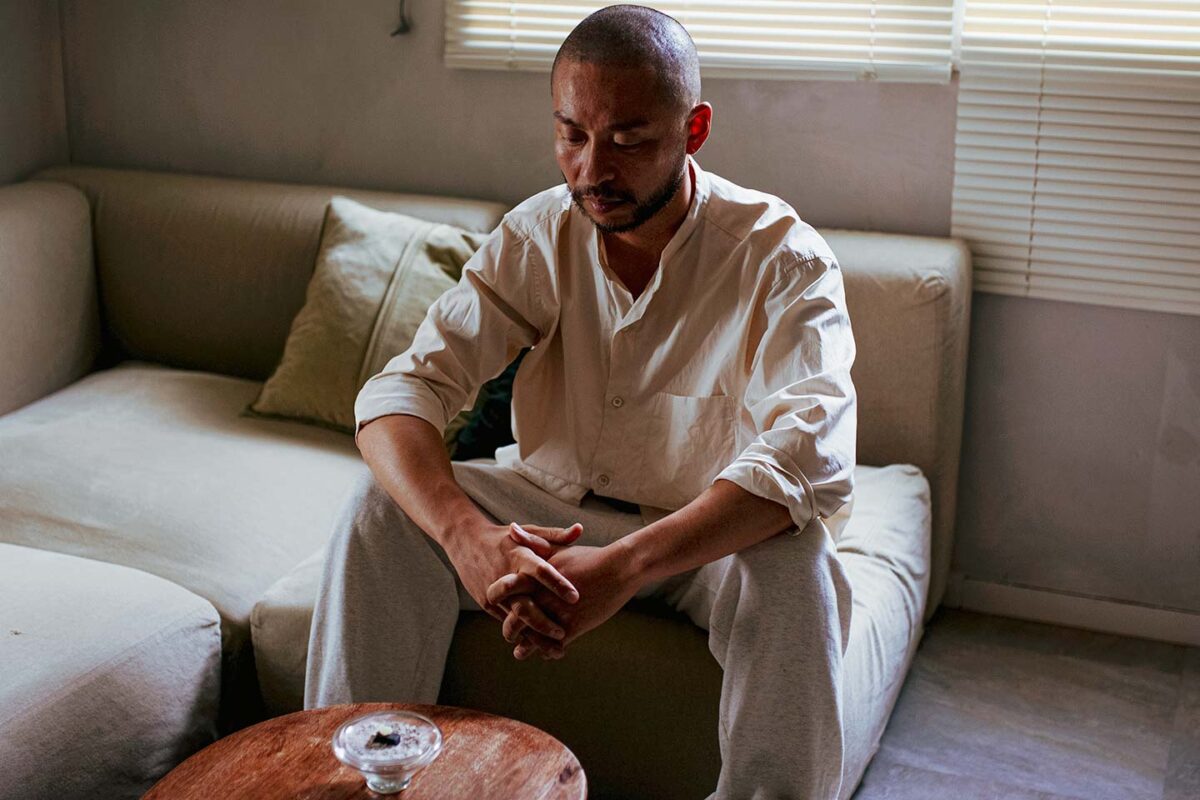
The path that I’m taking is not under the sun, but through a dark tunnel. The first time I saw a glimpse of light was when I won the Tokyo round and took third place at the Japan Roaster Competition in 2019. I’d been roasting for just three months. I was completely self-taught and using only my own taste buds as a guide. Winning that competition proved to me that I was right to believe in myself.
13 years since opening my own business and the light at the end of the tunnel is still far in the distance, but the only way I can get closer is if I keep going. It’s not about whether or not the path you’re walking on is the right one, it’s about whether or not you care about where you’re going. I’m still trying to find my path in the dark. But the thing that keeps me going, that keeps me believing that I’ll make it to the light, is my passion and love for coffee.
Full-width image:@leaves_coffee_roasters
LEAVES COFFEE ROASTERS
- [Open]
- 10:00-18:00